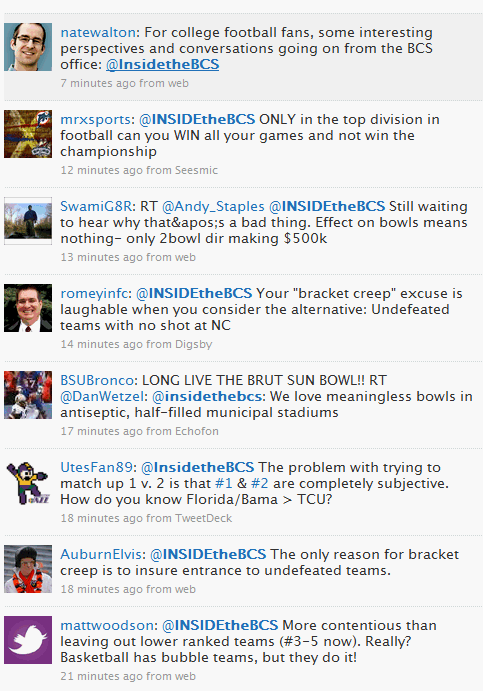Read This: Confessions of An Agent on Sports Illustrated
The Bottom Line: Josh Luchs used to be a sports agent for NFL prospects, and as part of being an agent he gave money and favors to players while they were in college. He names some of the players, some of the agents, and other co-conspirators. Cue controversy.
There are a lot of things you could argue from this article: Luch’s motive for writing this, the ethics of naming players, whether he is credible – these are all valid questions. To me, what lies at the heart of this debate is the (possibly not surprising) issue of players getting money under the table from agents.
One thing that this article taught me. There are players that have a genuine need, but players can be as greedy as the agents giving them money.
The NCAA can sit on Mt. Pius and preach the purity of the student athlete and the corruption of evil agents, but the fact is that they are making hand-over-fist profit on the backs of these students that don’t get paid. Granted, the student athletes often receive scholarships, but given that NCAA Div-I schools graduate 54% of football players, there’s question to the value of the scholarships – which arises the question of whether paying student athletes would help curb this practice. This is definitely a controversial idea, and I’m not advocating that it would fix things, but what other suggestions are there to curb this practice? The NCAA already threatens to suspend players, should criminal charges be filed against the students and agents for tax evasion? Should players proved to have ben accepting money be suspended from the NFL?
At the end of the day, is any harm being done? Is this simply the norm for agents trying to court student athletes – namely football players – to their representation? Should we be willing to accept that dealings for high draft picks are synonymous with shady agents?
I’m not sure if I have any answers is, but this article has spawned some very interesting discussions throughout sports this week.
